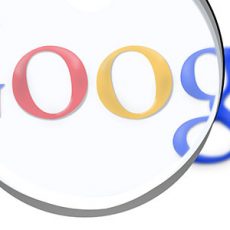
Polarisation, discord, lies, distrust… Words that describe the current situation in our democracies, a time of “pluralism without debate” in Bernard Manin’s apt expression. The paradox of our time is that we continue to legitimise liberal democracy on the basis of a moral ideal that is increasingly remote from reality.
Our public sphere is sliding down a slope in which reasoned discussion on the public interest is giving way to a postmodern circus where perversion of language, disqualification of the adversary, and “alternative facts” contaminate everything.
Although no complex social phenomenon responds to only one cause, it is clear the Internet and social networks have significantly deteriorated both the form and content of political competition. Never before has the perception of the social impact of a new technology turned so quickly from optimism to discouragement: currently, the dynamics created in virtual space keep us at a distance from a debate that is informed, calm, and with a willingness to understand each other which, at least in theory, is a distinctive sign of a quality democracy.
First, the disintermediation of public communication has meant an alarming devaluation in the value of truth. The big problem of modern democracy, diagnosed by Schumpeter in the middle of the last century, is that citizens are not willing to bear the enormous cost in time and effort involved in being well informed on each of the issues that inhabit the political debate.
In complex societies, this structural problem can only be partially lessened through specialised intermediaries capable of selecting relevant information, rigorously contrasting it, and exhibiting it in a way that is understandable for public opinion, establishing mechanisms to control biases that are often fallen into unconsciously.
Problems distinguishing between true and false information
This task has largely been the responsibility of traditional journalism and the media. Nevertheless, today the technological revolution lets every citizen be both a direct receiver and a direct sender of political content on the Internet. Without intermediaries in charge of exercising prior quality control, the virtual space of social networks fills up with damaged goods – hoaxes, biased data, conspiracy theories – and it becomes increasingly difficult to separate the truth from a lie.
According to data from Eurobarometer, in 2018 almost 40% of Spaniards claimed to have problems distinguishing false information from what is not false. The added problem is that, according to another study published that year by the journal Science, false news spreads faster and goes further and reaches more people than real news. And it is us who massively spread this news with our telephones.
Why do we tend to spread false news?
We tend to spread false news in part because its spectacular nature attracts us, and in part because it often says what we would like to be true. Human beings have a natural tendency to hold onto that part of reality that confirms our prejudices, since the emotional cost of rectifying entrenched beliefs is too great (called confirmation bias by psychologists).
Today, the technological revolution lets us give free rein to this innate sectarianism. The Internet and social networks have fragmented the public sphere into thousands of partial bubbles – also called “echo chambers” – where we find the data and perspectives that confirm our positions without going through an uncomfortable exchange with those who think differently. The result is more sectarianism and more polarisation: Today, in the same building, people live together who reside in such opposite communication bubbles that going beyond a conversation about the weather becomes a high-risk activity.
Finally, experiences in virtual participation – on Facebook, Twitter or WhatsApp – gain ground versus other spaces for discussion. The difference between face-to-face debate and a virtual discussion is that anonymity relaxes standards of civility and respect that we self-impose on ourselves when we have a discussion with others in the real world.
We live in a climate of polarisation
Moreover, those who are more motivated to participate tend to be the ones who have more intense preferences, which favours a climate of polarisation that turns the virtual space into a battlefield of the people who are most radicalized. Leaving social networks in the hands of extremists overrepresents their positions and produces a climate of permanent anger.
The situation gets worse when these dynamics colonise the traditional media. In their struggle for the audience’s attention, the media – especially television – ends up resorting to sensationalisation and dramatization of the content they present to the public, even at the cost of contributing to its banalisation.
In parallel, the proliferation of broadcasters publishing shocking content – videos, tweets, rumours – has led to an unprecedented acceleration in the news cycle, which impedes deep reflection on the issues happening constantly on the political agenda.
Far from countering this trend, party elites have enthusiastically jumped on the bandwagon of the new political (non-)communication because they figure this helps maximise their short-term electoral expectations, at the expense of increasing citizens’ cynicism and disaffection.
Deterioration of democratic debate
In the face of this deterioration of democratic debate, measures for self-control from the media and large Internet platforms have proven inadequate. The current state of affairs may be the result of a spontaneous confluence of factors, but reversing this trend requires thoughtful corrections in the design of our public communication systems.
These reforms should be based on considering political information as an asset that is particularly in need of protection beyond the official period of election campaigns.
Likewise, new institutional designs are urgently needed to encourage professionalism and rigour in the processing of information in order to, at the very least, counter the sectarianism that roams freely over social networks. In this respect, there are very interesting proposals from social scientists and theorists on democracy who, unfortunately, never get a prime time slot on major media.
To succeed, all these reforms must go in parallel with a deliberate effort to increase the mass of critical-thinking citizens capable of resisting the siren songs of their own sectarianism.
By Carlos Rico Motos, adjunct assistant professor at the Universidad Pontificia Comillas.
This article was originally published in the Spanish version of The Conversation. The EADT is passing it along for your interest, although it does not necessarily reflect the Association’s position.




